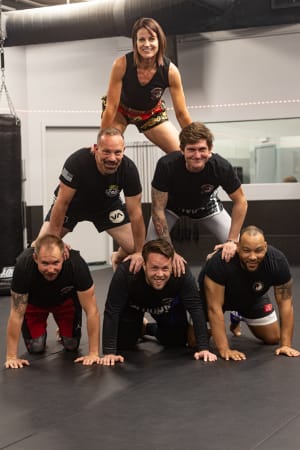
In the disciplined world of martial arts, the coach stands as both a beacon of knowledge and a pillar of support. But what does it truly mean to take on the role of a martial arts coach? In this post, we dive deep into the lives of those who dedicate themselves to teaching, shaping, and inspiring students in the art of combat and self-control.
The Unsung Heroes of the Dojo
Martial arts coaches go beyond mere instructors—they are mentors, confidants, and sometimes even a sort of family. Their day begins long before the first student steps on the mat, preparing lesson plans tailored to diverse needs, from the nervous beginner to the seasoned martial arts athlete. Each session is more than just a series of movements; it's an opportunity to instill confidence, discipline, and respect for others.
Fueled by Passion
Ask any coach why they do what they do, and the word "passion" will surface almost immediately. This passion is not just about mastering the martial arts themselves but about seeing their students grow and excel. Helping others is what keeps them going.
A Day in the Life
The life of a martial arts coach is one of rigorous routine and heartfelt interactions. Mornings might be spent reviewing student progress and adapting techniques to maximize effectiveness. Afternoons are a whirlwind of classes, from high-energy sessions for children to focused training for adult athletes. Yet, amid this busy schedule, coaches remain committed to their training, continually learning and evolving to bring fresh insights to their students.
The Rewards of Coaching
The rewards of being a martial arts coach are immense. There is profound satisfaction in watching a shy child throw their first confident kick or an adult master a complex technique after weeks of effort. The community aspect cannot be overstated, coaches often build a family within their dojo, a group of people who support and uplift each other.
The Challenges as a Coach
However, the path of a coach is not without its obstacles. The work-life balance can be difficult to maintain, with long hours and the need to be "always on." Financial uncertainty can also be a stress point, especially within less mainstream martial arts or at smaller dojos. Physical strain and emotional investment can lead to burnout if not managed carefully.
The Mark of a Great Coach
What makes a great martial arts coach? Patience, perseverance, and a genuine desire to see others succeed are most important. They must be effective communicators, capable of delivering feedback that motivates and enlightens. Above all, a great coach never stops learning—both as a mentor and as a martial artist.
Martial arts coaching is a journey of continuous personal and professional growth. It requires a balance of technical skill, emotional intelligence, and an unyielding commitment to the development of others. Our coaches are more than instructors—they are the heart and soul of our practice.
We hope this glimpse into the life of a martial arts coach has given you a deeper appreciation for the dedication and hard work they bring to the dojo every day. Thank you to all the martial arts coaches out there positively impacting lives. Grateful for your hard work and passion. Let's celebrate these pivotal figures together.


